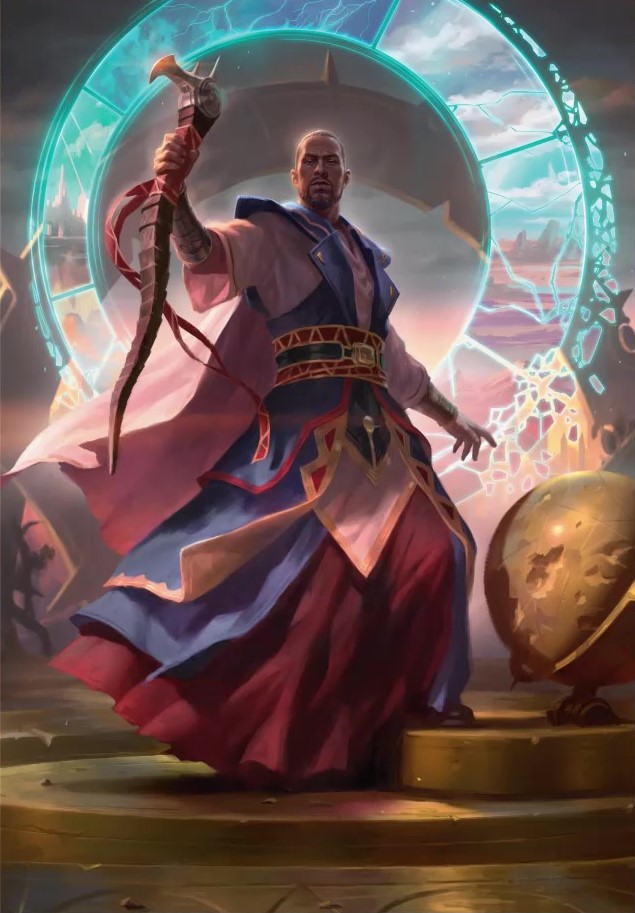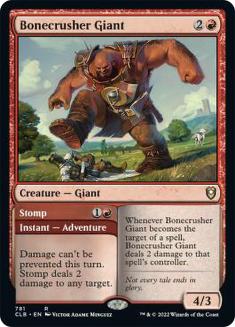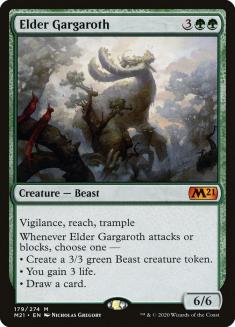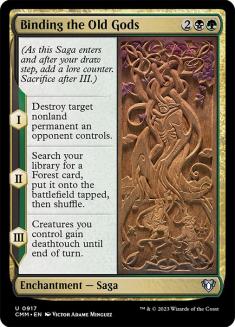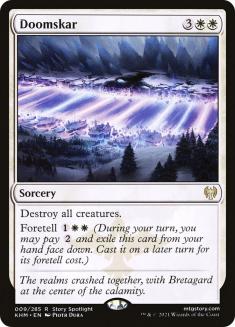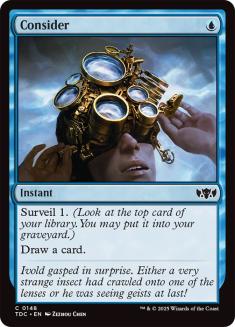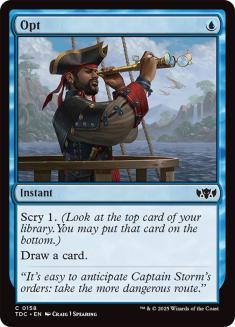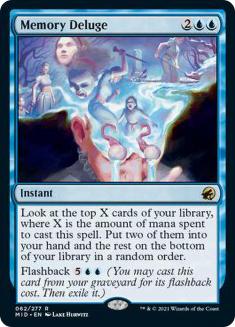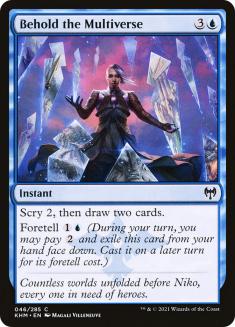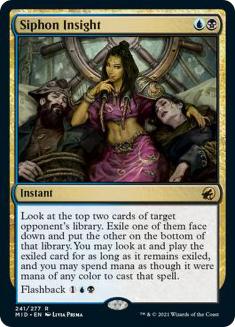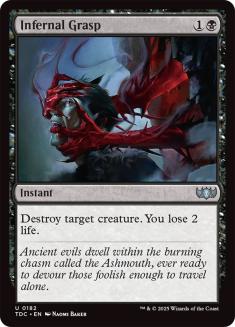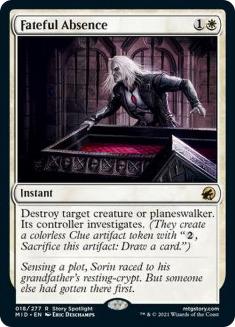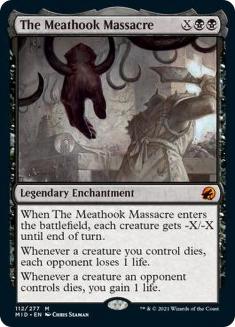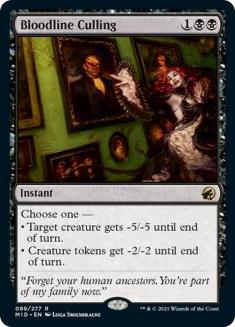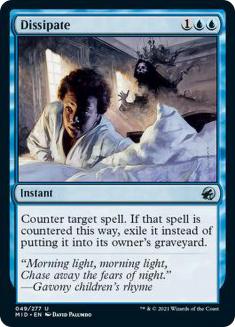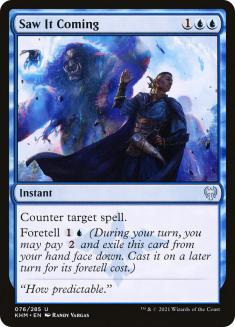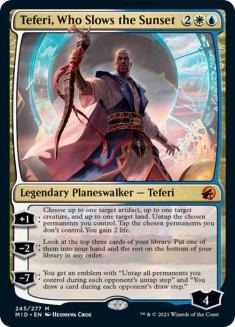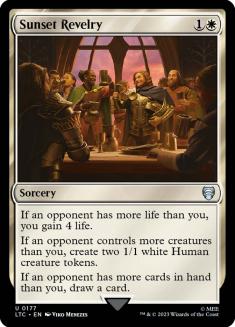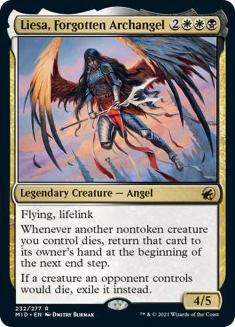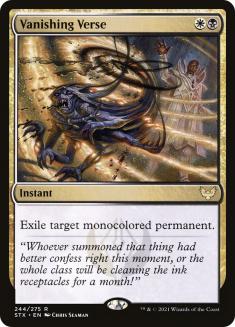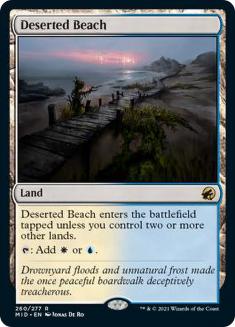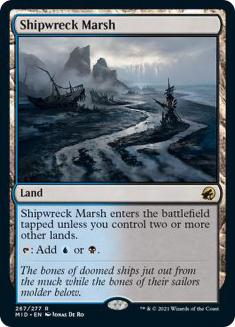The new Standard is upon us, and an avalanche of control cards are crashing into competitive play from Innistrad: Midnight Hunt. With the first week of preview cards, I was struggling to find a card to be passionate about. There’s always one diamond in the rough I dig to find in each set, even if it is a bit of a gamble. With a full rotation having already taken place online, the metric shifts for what makes a control option good or bad.
When formats are stale with a ton of legal sets, there’s a giant barrier for any new card entering the arena. This goes double for control, especially regarding Standard. It’s no secret that my favorite archetypes have had a rough go over the last few years. This is a side effect of powerful, homogenous design that funnels every deck into a midrange abomination. I have often voiced my opposition to the direction that my favorite game has headed, but I finally have seen the light at the end of the tunnel.
The last few sets made, with this one included, have dramatically lower power levels than those before it. Spells are not as good, creatures do not obliterate you when they enter or leave the battlefield, and there’s no single card that the community is demanding a ban for. These are good signs for all of us, control and other, regarding a new healthy Standard that’s about to start. To top it all off, the new tools being printed for control seem to have a slight leg-up on its creature competitors.
Rotation is going to wipe out the natural predators for control. Big-mana decks are on their way out, leaving behind more creature-centered midrange decks in their place. These new creatures, along with their siblings that were printed in non-rotating sets, are mostly susceptible to traditional sweepers. My excitement to cast an unimpeded Doomskar is through the roof, especially with enhanced card draw, new disruption, and other generic control upgrades from Innistrad: Midnight Hunt. Let’s rate the impact that each group of new cards will have on Standard control, and their place in the competitive metagame.
Card Draw
The card draw department is where we get the biggest benefit from the new set. As strength and speed of Standard crash to a respectable level, we have time to sit back and draw some cards. There will still be fast aggro and unforgiving midrange decks putting the pressure on, but not at the same ferocity as it was. Opt and Behold the Multiverse were fine draw spells, both of which have now been replaced by upgraded versions.
Consider is the clear victor over Opt, giving the controller the option to pitch a dud in the graveyard. That is the common play; however, there will be those lucky moments where a powerful flashback spell is discarded instead. The floor of an instant-speed cantrip for one mana was reached, with obvious upside that will be taken advantage. I’m not sure if a one-mana card draw spell will make the initial control cuts but Consider provides enough upside to make it a difficult decision.
The home-run card draw spell of the set is Memory Deluge. This is a no-brainer, top tier card draw spell that will immediately replace Behold the Multiverse in control decks. Not only is this a quick upgrade, it’s also powerful enough to increase the raw strength of the archetype on its own. The issue with control in Standard is its tendency to run out of steam against the midrange decks, especially since the power increase, they experienced. The flashback on Memory Deluge is Dig Through Time, a spell that caused anguish in opponents that thought they had come ahead in the resource race. This article will cover all the greatness that control will absorb from the new set after rotation, but none are great than Memory Deluge.
The controversial card draw spell that excites me, but I fear may disappoint, is Siphon Insight. A Dimir-colored, two-mana card draw spell immediately gets my attention. It’s rare, has flashback, and fits perfectly into my most-played archetype. These attributes are normally enough to get me to immediately commit to four copies; however, reality has brought me back down to earth. Siphon Insight is a fantastic midrange card, but a mediocre control card at face value. It will consistently lead to hitting land drops but can provide you a worthless spell for specific scenarios. Midrange decks can always attack down an opponent, while a control player will not enjoy receiving a vanilla creature that must connect ten times for lethal. Regardless of what the odds are, I will test it to verify my theory and see if it merits competitive play in control decks.
Card Draw Rating: A+
Disruption
Innistrad: Midnight Hunt has a few pieces of disruption to add to the control arsenal; however, I’m not convinced they’re much better than the surviving options from rotation. Losing Heartless Act and Eliminate are hits, but at least we kept Power Word Kill and Bloodchief’s Thirst. Focusing on black removal, the new set delivers Infernal Grasp as another near-universal removal spell for any type of threat. I’m unsure it will see a ton of play, since this color has no shortage of options in the removal department. Paying two life may be too tall of an ask for a traditional control deck, especially one that has as many options as this. I could easily see this played in multiple Standard formats of old, before they seemingly printed an alternative in each set.
The most notable removal spell from the new set is Fateful Absence. This one receives the most criticism and praise, which is normal for spells that produce card disadvantage. This two-mana instant may leave you down a card at the end, but it does hit any planeswalker or creature in the format. I see this card being heavily played in midrange and aggro decks, while seeing supplemental play in control. At least it forces the opponent to pay some mana for their extra card, unlike its predecessor Baleful Mastery.
The rest of the removal in this disruption category is a bit on the fringe side. I really like The Meathook Massacre and Bloodline Culling — two cards that will see extensive play if tokens run amuck. There’s a gargantuan upside for a resolved The Meathook Massacre if it kills everything on the battlefield. Lifegain for control is still a trait that we most seek out, so I hope to see this hit the battlefield on a regular basis. On the other side, Bloodline Culling has a strong place in the format if tokens are swarming the metagame. At this point, I’m not cosigning these as control staples until the first events take place.
Outside of removal-based disruption, there’s not much in Innistrad: Midnight Hunt. The only card of note that I have seen is Dissipate, which may not make it to competitive play at the start. Saw It Coming is the gold standard, three-mana counterspell that we all love to hate. There’s upside with the foretell mechanic, reducing the mana cost in a pinch, making it stronger than its competitors. The only way Dissipate sees the light of day is if the control decks have an issue with graveyards or flashback. Even then, I’m not convinced that a complete abandonment of Saw It Coming would be warranted. This is another spell that’s hard to evaluate, in terms of moving the needle for control’s success in the upcoming Standard. We will have to see how the format shakes out before enlisting all the anti-graveyard cards we see.
Disruption Rating: B
Additional Helpers
There are a couple cards from Innistrad: Midnight Hunt that do not fit in the card draw, disruption, or win condition categories. Even though we all like to think of all planeswalkers as finishers, Teferi, Who Slows the Sunset is not one. Teferi is amazing, along with all his previous versions, but this version provides control a decent mid-game power play that it has lacked for the last year or so. One of the strengths control has had in Standard over the years has been a strong tap-out element, typically a planeswalker, that continues to provide advantage as long as it remains on the battlefield. Once something like this has resolved, the support spells overwhelm the threats with relative ease. This Teferi will continue that legacy, even at its weakened level.
Teferi, Who Slows the Sunset cannot compare to its predecessors, and the decline in power level is not to blame. The first ability is the culprit, even though it does have some application for control decks. Tapping and untapping permanents can assist in some niche situations, the most important to control being the one additional mana that can be produced. Outside of that, it gains two life as well, which is always a nice touch for any card in this archetype. The rest of the abilities on Teferi are busted, giving us an Anticipate and an unbeatable ultimate. All in all, Teferi is a decent planeswalker and should not be critiqued based on its previous iterations.
My most anticipated spell in this set is another oddball that does not fit into a specific category. Sunset Revelry is making its way into every one of my decks in every competitive format. It puts Timely Reinforcements into an early retirement immediately upon its release. For one mana cheaper, Sunset Revelry can gain four life, make two Human tokens, and draw a card, which is bonkers. I didn’t think this type of packaging would be allowed in production, but I was clearly wrong. As the format weakens from rotation, aggro will be a popular choice amongst the undecided. This is usually the case, which is why my greatest successes have occurred in the early stages of Standard. While everyone is trying to attack with mediocre threats, I cast my generic card draw, sweepers, and sturdy win conditions on Day 1. Now with these cards listed in the article, especially Sunset Revelry, I yearn for one-drops to come my way.
There are a few other cards in this set that may get a starting slot early into the new Standard. I wrote about Leisa, Forgotten Archangel earlier this month and still really like it as an aggro killer in Esper Control. With Vanishing Verse and a decent mana base, it’s a strong possibility that three-color is where I start. I was planning on piloting Dimir or Azorius Control on the first day, but the temptation is there to play all the great cards at our disposal.
Additional Helpers Rating: C+
This was an important article for me, as I gather my thoughts on the future of control in competitive Standard play. There are some pushed Gruul decks headed our way that threaten our viability with Arlinn, the Pack’s Hope, but that seems to be the scariest enemy. The rest of the format’s threats, surviving rotation and new, are cleanly dealt with by the many options we have access to. The one thing I know for certain is that Innistrad: Midnight Hunt has increased control’s chances at success, far more than the sets prior. To kick start the format, here is the Dimir Control deck I am bringing, based on the categorical strength described earlier. The additional helpers section received my lowest rating, which leads me to Dimir over Azorius and Esper Control. The win conditions and planeswalkers have not improved with the most recent set, but the disruption and card draw has. Dimir Control adopts the best of the new world, while hanging on to the decent support from the old world. The weakness in control decks centers around closing the game out, which is why I’m confident that Iymrith, Desert Doom is needed to take us across the finish line. This list has shifted some, since the results of the Hooglandia Open; however, the fundamentals have not. The strength of black-based removal is good enough to take on the Top 8 from this event and shifting the numbers is all that is left for the upcoming weeks of competition.
Creatures (3)
Lands (20)
Spells (37)


